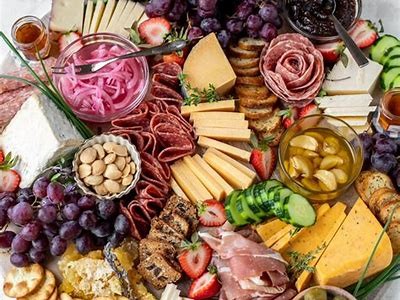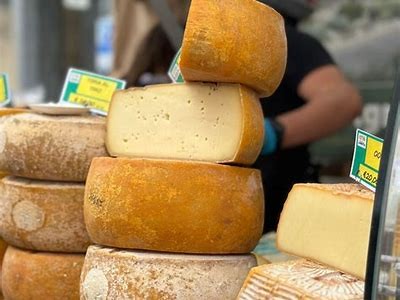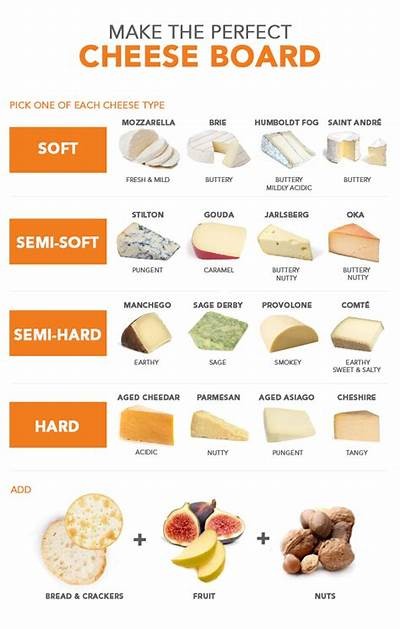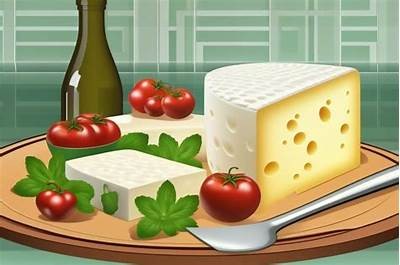Cheese is a remarkable food that benefits from the craftsmanship of artisans from around the world. It plays a vital role in various cuisines and brings depth to a plethora of dishes. Whether you're a novice cheese lover or a seasoned connoisseur, creating a delightful cheese selection can elevate your culinary experiences to new heights. In this article, we will delve into the various types of cheese, their unique characteristics, and suggestions on how to incorporate them into your gastronomic adventures. Choosing the right cheeses for your selection is an art form. It encompasses understanding the flavor profiles, textures, pairings, and the regions they hail from. A well-rounded cheese platter often contains a mix of soft, hard, and blue cheeses, each offering a distinct taste and texture that can complement each other beautifully. Soft cheeses, such as Brie and Camembert, are known for their creamy texture and rich flavors. Brie, with its buttery taste, pairs beautifully with sweet fruits like figs or grapes, while Camembert's earthy notes complement salty crackers. These cheeses are perfect for spreading on bread or served alongside a fruity compote. This classic cheese hails from the Île-de-France region of France and stands out with its soft, edible rind and gooey interior. A true delight when served at room temperature, Brie can be enjoyed on its own or paired with honey, nuts, or dried fruits for a scrumptious experience. Similar to Brie but with a somewhat stronger flavor, Camembert is another French treasure. It can be oven-baked for a warm, gooey treat that serves well as a dip when accompanied by a crusty bread. Hard cheeses offer a depth of flavor that enhances many dishes. They are often aged longer, resulting in a firmer texture and a concentrated taste. Popular choices include Parmigiano-Reggiano, Manchego, and aged Gouda.
Known as the "King of Cheeses," Parmigiano-Reggiano is a must-have for Italian cuisine. Its granular texture makes it ideal for grating over pasta or salads. It features a nutty flavor that becomes more pronounced with aging, making it a versatile addition to many dishes.
Originating from Spain, Manchego is crafted from sheep’s milk and is characterized by its firm texture and distinctive flavor profile, which ranges from mild to sharp depending on the aging period. It pairs beautifully with quince jam or nuts for a delightful contrast of flavors.
Blue cheeses, such as Roquefort and Gorgonzola, are known for their bold, tangy flavors and blue veins of mold. They can add a dramatic flair to salads, pastas, and cheese plates.
This French cheese is made from sheep milk and is famous for its crumbly texture and distinct aroma. Roquefort pairs well with sweet wines like Sauternes or Port, making it an excellent addition to any cheese board.
Gorgonzola is a creamy blue cheese from Italy that adds richness and depth to various dishes. It can be used in risottos, pasta dishes, or as a topping on steak, offering a unique flavor profile that’s truly indulgent.
When creating a cheese selection, it is essential to consider the accompaniments. Wine, fruits, nuts, and bread can elevate your cheese experience. Let’s explore some pairing suggestions.
Pairing wine with cheese can enhance both the flavors of the cheese and the wine itself. Generally, white wines like Chardonnay complement soft cheeses, while reds like Cabernet Sauvignon work well with hard cheeses. Experimenting with various pairings can lead to delightful discoveries.
Fresh or dried fruits like apples, pears, and figs can provide a refreshing contrast to the richness of cheese. Nuts such as almonds or walnuts are also excellent accompaniments, adding a crunchy texture that balances the creaminess of cheeses.
A selection of breads and crackers should always accompany your cheese platter. Baguette slices, artisan crackers, and breadsticks offer a variety of textures, making them perfect vehicles for enjoying cheese. They also help cleanse the palate between different cheese tastings.
A beautifully arranged cheese board not only pleases the palate but also the eyes. To create an impressive cheese board, follow these simple steps.
Make sure to include a good mix of soft, hard, and blue cheeses. Aim for at least three to five different types to provide a range of flavors. Choose cheeses from various regions for an interesting international flair.
Arrange your cheeses in a way that encourages exploration. Include small labels or signs to identify each cheese, and consider adding fruits, nuts, and other accompaniments in between the cheeses for visual appeal.
Finally, add decorative elements like fresh herbs or edible flowers to enhance the aesthetic of your cheese board. Presenting your selection with creative flair will impress your guests and encourage them to indulge in the experience.
Creating a delicious cheese selection is more than just picking a few varieties from your local grocery store. It’s an adventure that invites you to explore the world of flavors, textures, and pairings that cheese has to offer. With a little knowledge and creativity, you can craft an unforgettable cheese experience that delights your taste buds and those of your guests. So, go forth and savor the diverse universe of cheese as you embark on your culinary adventures!
Creating a Delicious Cheese Selection: Exploring the Best Cheeses for Your Culinary Adventures

The Art of Cheese Selection

Soft Cheeses

Brie

Camembert

Hard Cheeses
Parmigiano-Reggiano
Manchego
Blue Cheeses
Roquefort
Gorgonzola
Pairing Cheese with Other Ingredients
Wine Pairings
Fruits and Nuts
Breads and Crackers
Creating a Stunning Cheese Board
Variety is Key
Get Creative with Arrangements
Finishing Touches
Conclusion
